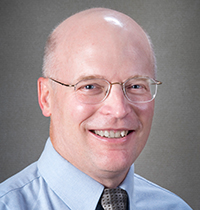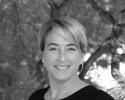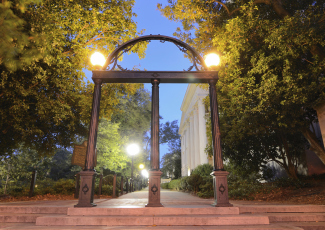5 Questions for a Top Community College Professor
By Emily Rogan
December 18, 2014
Monroe Community College professor John Wadach discusses the changing education landscape, his hope for his students, and what it means to be named this year’s Community College Professor of the Year.

Community college professors work hard at the hard work of teaching. Semester after semester, they help their students learn the critical skills needed to succeed at four-year colleges or universities or in careers. Every November, one stellar community college professor is recognized for his or her contributions to the educations of many.
This year, John Wadach, professor of engineering science and physics at Monroe Community College (MCC) in Rochester, N.Y., was named the Community College Professor of the Year by the Carnegie Foundation for the Advancement of Teaching and the Council for Advancement and Support of Education. Wadach was recognized at an event in November at the National Press Club in Washington, D.C.
A 30-year veteran of community college education, Wadach is no stranger to recognition. He has received the Association of Community College Trustees’ William H. Meardy Faculty Member Award and the Northeast Regional Faculty Member Award, among others.
Wadach is chairperson of his department and teaches several courses, including engineering graphics and machining, engineering computing and digital electronics. He makes STEM coursework relevant and accessible to MCC students and has improved pathways to four-year institutions or employment after college. He’s also helped significantly increase and retain the number of MCC students who enroll in the engineering program.
We chatted with Wadach about his successful career and what, after three decades, still inspires him to teach.
What do you appreciate about the community college environment?
This is a place where you can focus on teaching and interacting with students. I don’t have to split my time with research, writing papers and getting grant money. Students here really need a good instructor; at selective universities, it’s likely those students will be successful before they start. But here, we have students who may have had bad experiences in high school, have no parental assistance, are just out of the military or are holding down jobs and supporting families. And these students are performing.
When they come to us, we have a chance to make a significant difference in their lives — [this education] might mean the difference between creating a middle-class lifestyle or being stuck in a retail job trying to make ends meet.
What do you love about teaching?
I like knowing the students personally and learning their stories. The stakes are higher for them, and you say to yourself, “I can’t fail them or fail to meet their needs.” It’s highly motivating.
These awards are nice, but the best thing about this award has been that some of my former students found out about it and have written to tell me the impact I’ve had on their lives. That doesn’t happen much in education, but when it does, those are the golden nuggets that keep me doing it.
What do you think sets you apart as an educator?
I’m never satisfied with the status quo. I feel guilty if I’m not progressing or changing our courses to keep them modernized and up-to-date. If a student says, “I transferred and I didn’t feel prepared in some way,” I feel a strong obligation to address that. I’m always tinkering and changing things.
The way engineering used to be taught is students got barraged with theoretical courses at the start — hard calculations and theory. Students hated it, and we had a lot of attrition. They weren’t doing what engineers do: be creative, design and do things. About 15 years ago, we changed the emphasis so that students got interesting design and build experiences at the start. Even if the projects aren’t sophisticated, students have something tangible to do and see the results. This has really helped with motivation and attrition.
What are the major changes you’ve seen over the years in community college education?
I see a greater emphasis on tying the mission of the college to serve the needs of the community. In Rochester, the optics industry is big because of Kodak, which used to employ 60,000 people. Thirty years later, there are small and mid-sized companies making high-end optics. They look to MCC to supply employees; they need mid-level technicians with competency in math and science and hands-on skills to run the machines. In turn, the companies are vested in MCC; they buy machines for our labs, for example.
We also have better connection with Rochester public schools. There’s extreme poverty in Rochester; it’s one of the poorest cities in the state. Pushing into those areas is part of our mission.
We always drew from the lower- and middle-class neighborhoods, but now we’re starting to see more students from wealthier areas. The message of the student debt crisis is starting to resonate — $50,000 debt is a really hard way to start your life.
What do you hope for your students?
I hope that when they set foot on a four-year campus, they’re ready to compete at the top of their class. I want them to be as well or better prepared than if they had attended a four-year school the whole time.








